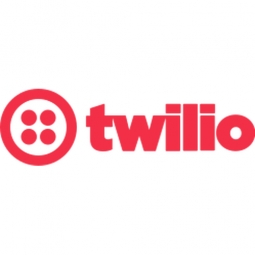Download PDF
Balihoo's Local Marketing Automation Using Twilio
Technology Category
- Platform as a Service (PaaS) - Application Development Platforms
Applicable Industries
- Telecommunications
Applicable Functions
- Sales & Marketing
Use Cases
- Leasing Finance Automation
- Material Handling Automation
The Challenge
Balihoo, a cloud-based marketing platform, was faced with the challenge of helping companies measure marketing ROI in global campaigns more effectively. The failure to connect with local markets was costing American businesses as much as $50 billion a year. National brands were struggling to make an impact with local advertising, with only 7% of nearly 300 brand marketing executives stating they offered effective campaigns to activate local consumers. Balihoo's mission was to make brand advertising more effective by automating local marketing campaigns. A key part of this was to offer brands local phone numbers in any geography, along with the ability to do call tracking, which would make it possible to determine if calls to those numbers turned into sales.
About The Customer
Balihoo is a cloud-based marketing platform founded in 2004 and headquartered in Boise, ID. The company's mission is to help national brands connect more effectively with local markets. Balihoo offers a solution to the problem of ineffective local advertising by national brands, which according to a survey, only 7% of brand marketing executives felt they were offering effective campaigns to activate local consumers. Balihoo's solution includes offering brands local phone numbers in any geography and the ability to do call tracking, which makes it possible to determine if calls to those numbers turned into sales.
The Solution
To provide reliable call tracking on a national scale, Balihoo turned to the Twilio communications API platform. The Twilio platform provided the reliability, scalability, and flexibility Balihoo needed to incorporate call tracking into local marketing automation. By integrating with Twilio, Balihoo expanded the capabilities of its platform without making any additional investments in hardware or software. Customers can now create targeted local websites with unique call tracking numbers and lead forms that automatically push both phone and web leads to sales agents. For example, when a leading national insurer wanted to connect with potential customers on a more personal, local level, Balihoo helped the insurer deploy 3,400 geo-targeted websites complete with on-demand call tracking numbers. The numbers could be provisioned as needed to keep costs down.
Operational Impact
Quantitative Benefit
Related Case Studies.

Case Study
Vodafone Hosted On AWS
Vodafone found that traffic for the applications peak during the four-month period when the international cricket season is at its height in Australia. During the 2011/2012 cricket season, 700,000 consumers downloaded the Cricket Live Australia application. Vodafone needed to be able to meet customer demand, but didn’t want to invest in additional resources that would be underutilized during cricket’s off-season.

Case Study
SKT, Construction of Smart Office Environment
SK T-Tower is the headquarters of SK Telecom. Inside the building, different types of mobile devices, such as laptops, smartphones and tablets, are in use, and with the increase in WLAN traffic and the use of quality multimedia data, the volume of wireless data sees an explosive growth. Users want limitless Internet access in various places in addition to designated areas.









